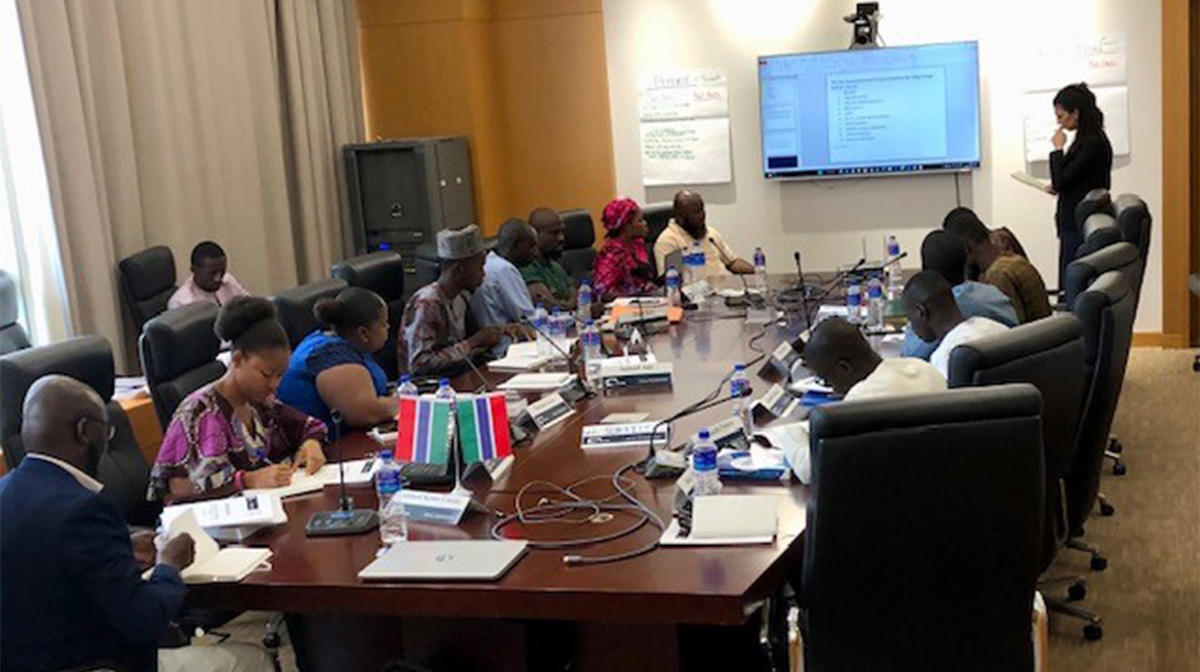Supporting Public Interest Lawyers in The Gambia

Posted on 11 April 2023 by Stephanie Peatman
Last month I was offered the life-changing opportunity to visit The Gambia and provide pro bono trial training alongside my DLA Colleagues, Naana Frimpong, Chris Young and Lisa Dewey. We were invited by The National Agency for Legal Aid (NALA), which was established in 2010 by the Government of The Gambia to provide legal aid to indigent persons seeking legal representation and advice. NALA in The Gambia is akin to the public defender’s office in the United States, and they also represent children involved with the court. NALA does all of this for the entire country of The Gambia with only about a dozen lawyers. Its lawyers are champions of justice and believe all individuals are entitled to competent representation when facing criminal charges.
Our DLA team provided a four-day training program focused on the cross examination of medical experts at trial, which requires a heightened understanding of medical theories of liability. Through lectures, interactive exercises and role-playing, we trained attorneys from NALA and The Ministry of Justice to prepare and qualify medical experts on direct examination, and to then cross examine and impeach those very same kinds of witnesses. Through the process of trial and error, we helped the attorney trainees to sharpen their skills by cross examining medical doctors currently practicing in The Gambia. Local high-court justices and police officers also attended the training to offer their perspectives and provided invaluable feedback to all participants.
The discussions we had throughout the training highlighted some of the unique challenges that attorneys in The Gambia face. For example, due to the limited number of physicians practicing in the area, cases often go to trial with a medical expert witness only on the side of the prosecution. With no independently retained medical expert on the side of the defense, NALA lawyers are tasked with a heightened understanding of medical terminology, pathology, diagnosis, and treatment in order to prepare the defense on behalf of their client and to conduct an effective cross examination of the prosecution’s expert witness. The training we provided helped fill a much-needed gap in cross examination of medical experts in Gambian criminal trials.
Moreover, while the official language of The Gambia is English, the most commonly spoken language is Mandinka. With nearly a dozen ethnic groups living side by side in The Gambia, language and cultural traditions vary widely throughout the region. The beauty of preserving the uniqueness of each village also creates a challenge to provide defendants with a trial by a jury of their peers. Regardless of the many legal challenges they face, the NALA lawyers persevere.
My experience in The Gambia broadened my respect and admiration for lawyers who understand the importance of providing pro bono representation to underserved communities around the world. Throughout the many discussions with my Gambian colleagues, I realized that while our legal systems may have some differences, they are built on shared core principals of wanting to help the community and promote justice.
Building Trial Advocacy Skills in The Gambia
